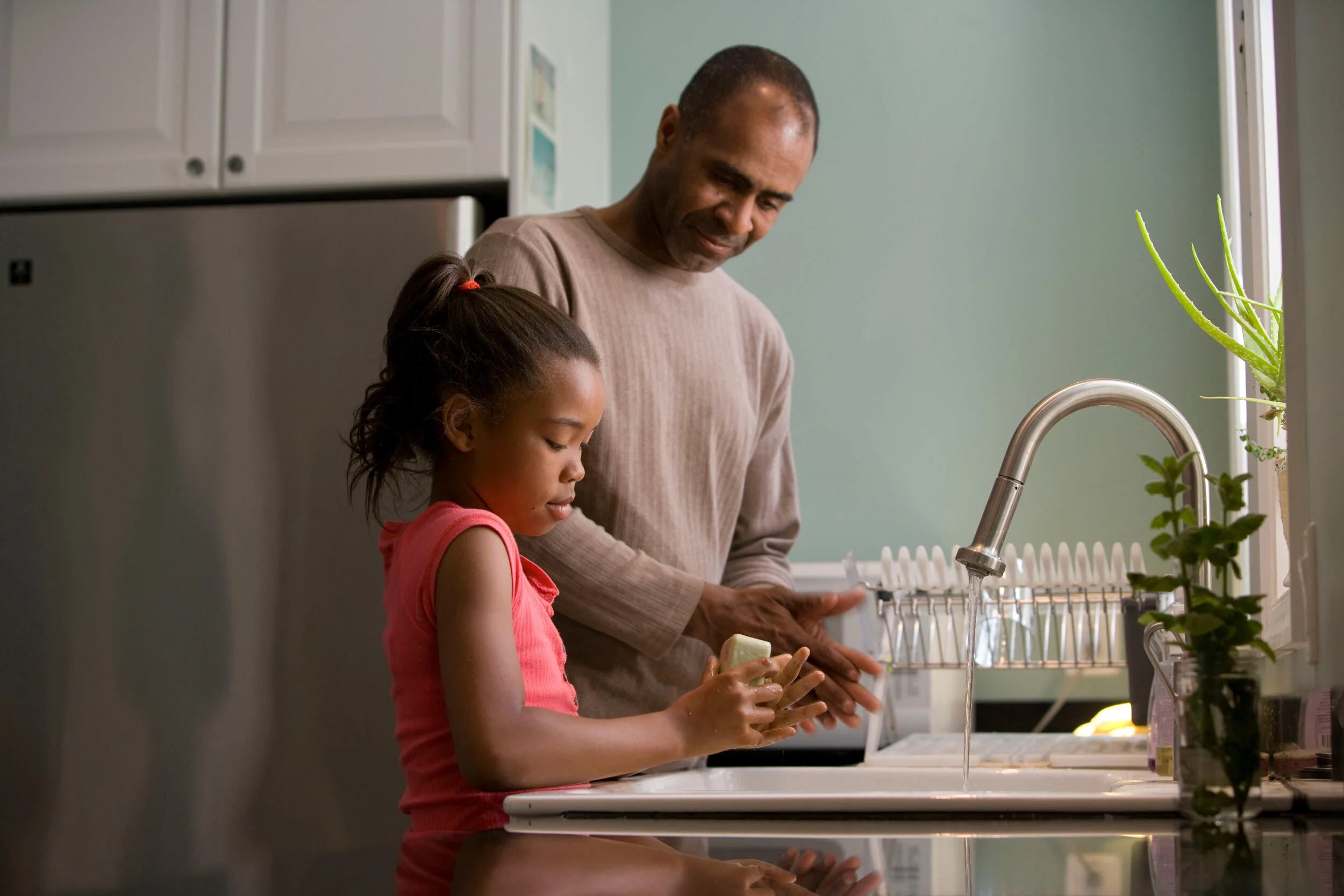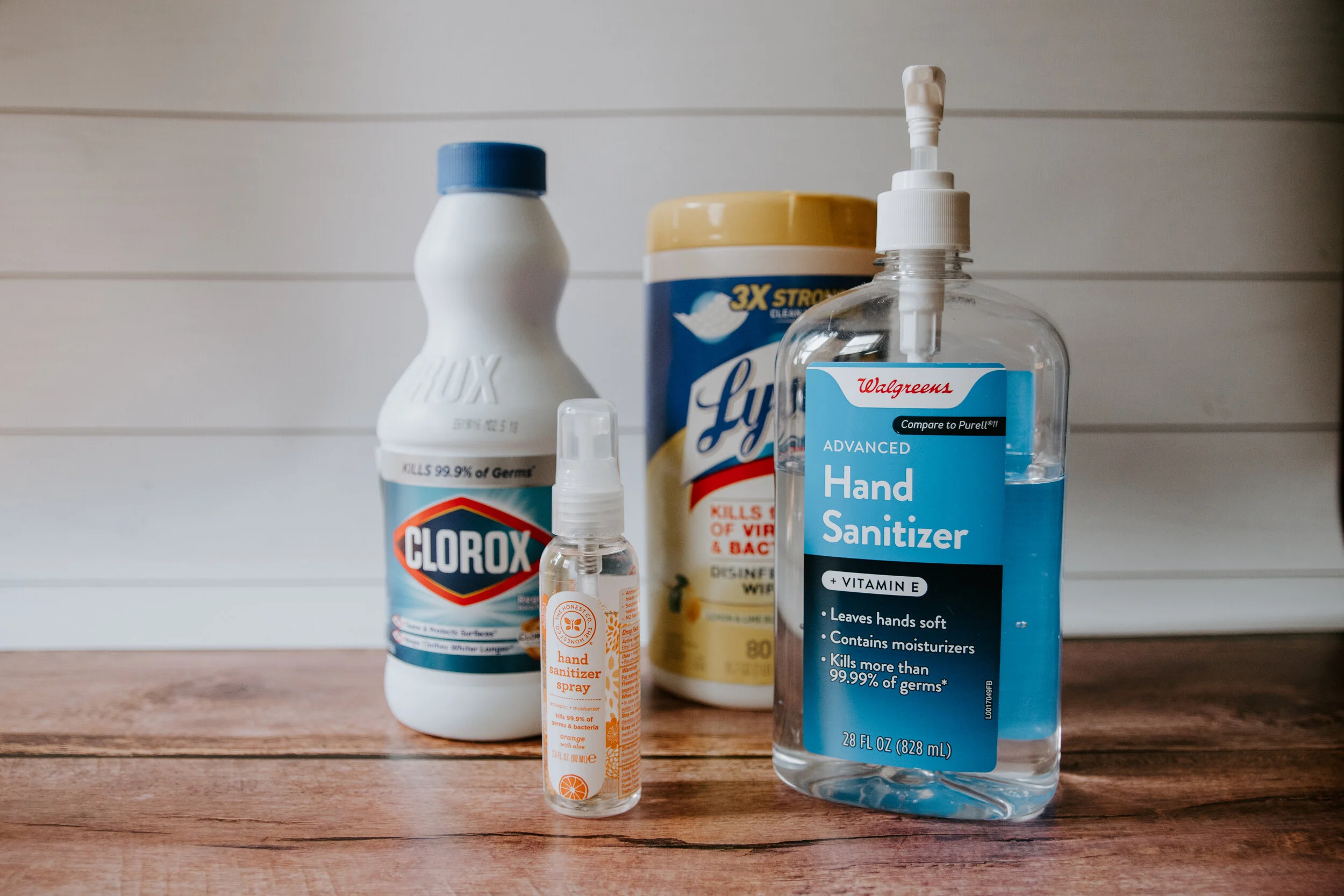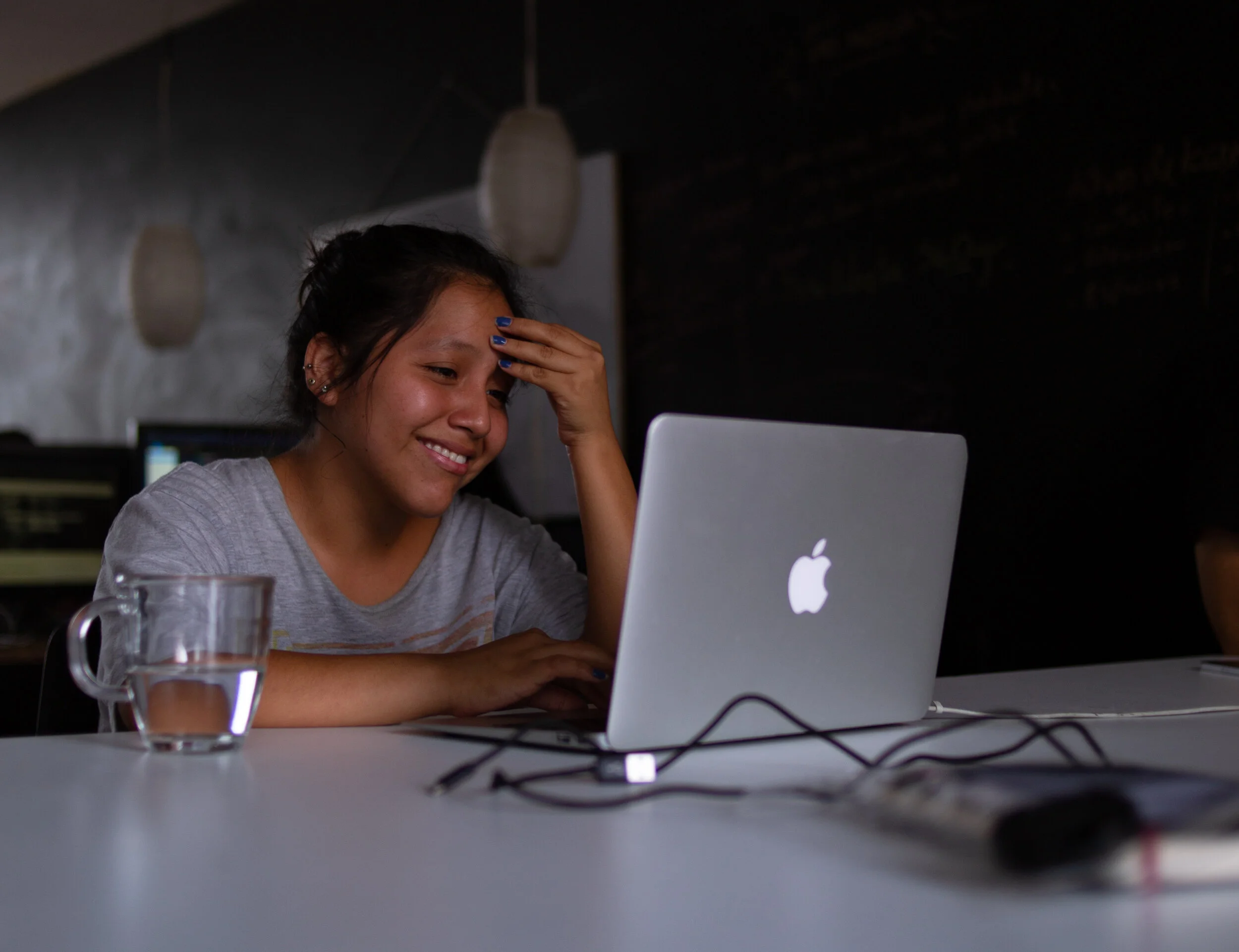After months of hearing about the dangers of catching COVID-19 and the need to sanitize everything, who among us hasn’t become a little germaphobic? Being extra wary of germs during a pandemic is a normal and healthy response. For children, however, fears about germs, catching illnesses, and needing things to stay clean might stick around long after our country reopens. Fear of germs is really common among kids with anxiety and OCD, and I suspect we’ll be seeing more kids than ever experiencing it after the pandemic. In this post, I’ll be sharing how to tell when your child’s fear of germs has become overwhelming, and how to spot common signs and symptoms of germaphobia in kids.
What’s Germaphobia, Exactly?
Simply put, germaphobia is a fear of germs: viruses, bacteria, parasites, you name it. An extreme fear of any of the creepy-crawlies that can make people sick is considered germaphobia. Although most people worry about spreading germs and catching diseases (especially right now), kids with germaphobia have fears that go above and beyond what is considered typical for most people.
Like other types of phobias, germaphobia is a response that is out of proportion to the actual threat. Even though germs can be dangerous, the lengths that germaphobic kids go to avoid contamination are extreme. In severe cases, the cleaning, avoiding, and rituals of germaphobia can start to feel like they’re taking over a child’s life.
As an example, a child with a healthy concern about germs might be diligent about washing their hands whenever they come in from outside, after they go to the bathroom, and before they eat. A child suffering from germaphobia may feel compelled to wash their hands constantly throughout the day, possibly to the point that their skin becomes chapped and dry. Most people might avoid eating meat at a restaurant that looks undercooked, but germaphobic kids might refuse to eat in restaurants at all, because they can’t control how the food is prepared.
What Makes An Intense Fear of Germs More Likely?
Phobias are more common among people who already have an anxiety disorder. Kids who are already prone to anxiety may be more likely to develop germaphobia symptoms than those who are not. In particular, many people with germaphobia are diagnosed with obsessive compulsive disorder, a form of anxiety that makes people feel like they have to perform certain actions over and over again to reduce anxiety or keep something bad from happening.
Obsessive worries about getting sick, throwing up, and contamination from germs are extremely common among kids and adults with OCD. Oftentimes, people with these types of obsessive worries feel compelled to wash their hands excessively, avoid places or objects they fear have been contaminated, or to overly clean their homes or belongings, sometimes in a ritualized way. Because these symptoms are so common in people with OCD, some experts believe that people who are truly phobic about germs can be diagnosed with OCD, as well.
Common Symptoms of Germaphobia In Children
Excessive hand washing, cleaning, and avoiding dirty places are all symptoms of germaphobia.
If you recognize your child’s behavior in one or more of the bullets below, it could mean that your child’s worries about germs and illness have gotten bigger than they need to be, and could be interfering with everyday life. Of course, mental health problems like germaphobia can’t be diagnosed over the internet, so you’ll need to follow up with your pediatrician or a children’s therapist. Here are some of the most common symptoms of germaphobia in children:
Repeated, uncontrollable worries about getting sick or being exposed to germs
Intense fear or terror about contamination
Physical symptoms of anxiety, such as rapid heartbeat, stomach upset, and sweating when confronted with something that triggers the fear of germs
Excessive cleaning or hand washing, that sometimes develops into a ritual that must be done the same way each time
Avoiding people, places, or things that are “contaminated” with germs
Signs Your Child Has Germaphobia
Anxiety symptoms can be hard to spot: they’re felt very intensely by the child who’s experiencing them, but may not always be visible to parents or other people. Signs, on the other hand, are behaviors that are more apparent to outside observers. If you notice any of these possible signs of germaphobia in your child, it could indicate they are struggling with invisible fears about germs or disease:
Avoiding places that your child perceives are “germy”, such as grocery stores, shopping malls, public transit, or airports
Refusing to touch things that have been touched by other people, or requiring that things be cleaned or covered in plastic before touching
Tantrums, crying, screaming, or clinging to a parent when in a public place that might contain germs
Repeatedly asking for reassurance about not having germs or not getting sick
Frequent handwashing, showering, or cleaning that seems to be more frequent than needed, especially if the cleaning has to be done in the same way each time
Your child’s cleaning, avoiding, or worries are exaggerated and getting in the way of daily life
Cognitive Behavioral Therapy for Kids With Fears of Germs
Germaphobia can quickly become overwhelming, both for kids and families. Fortunately, therapy can help kids to feel more in control of their worries and develop a healthier level of concern about hygiene and germs. Cognitive behavioral therapy, a specialized form of therapy that helps kids to change unhelpful thoughts and behaviors, is often recommended for children with germaphobia or OCD.
Kids who participate in cognitive behavioral therapy learn to become more aware of when their worries are unrealistic, learn relaxation skills, and gradually face their fears of germs and contamination so that they can get back to their normal lifestyles. Because CBT is based on learning skills, it is a great fit for both in-person and online therapy.
If you’re located in New York or North Carolina and interested in counseling, I may be ale to help! I work with kids and tweens at my child therapy office in Davidson, North Carolina, as well as online in New York and Florida. You can send me an email to learn more. Not ready for therapy, but looking for more general help with worries? My online self-help course helps kids learn coping skills to manage anxiety at home.




